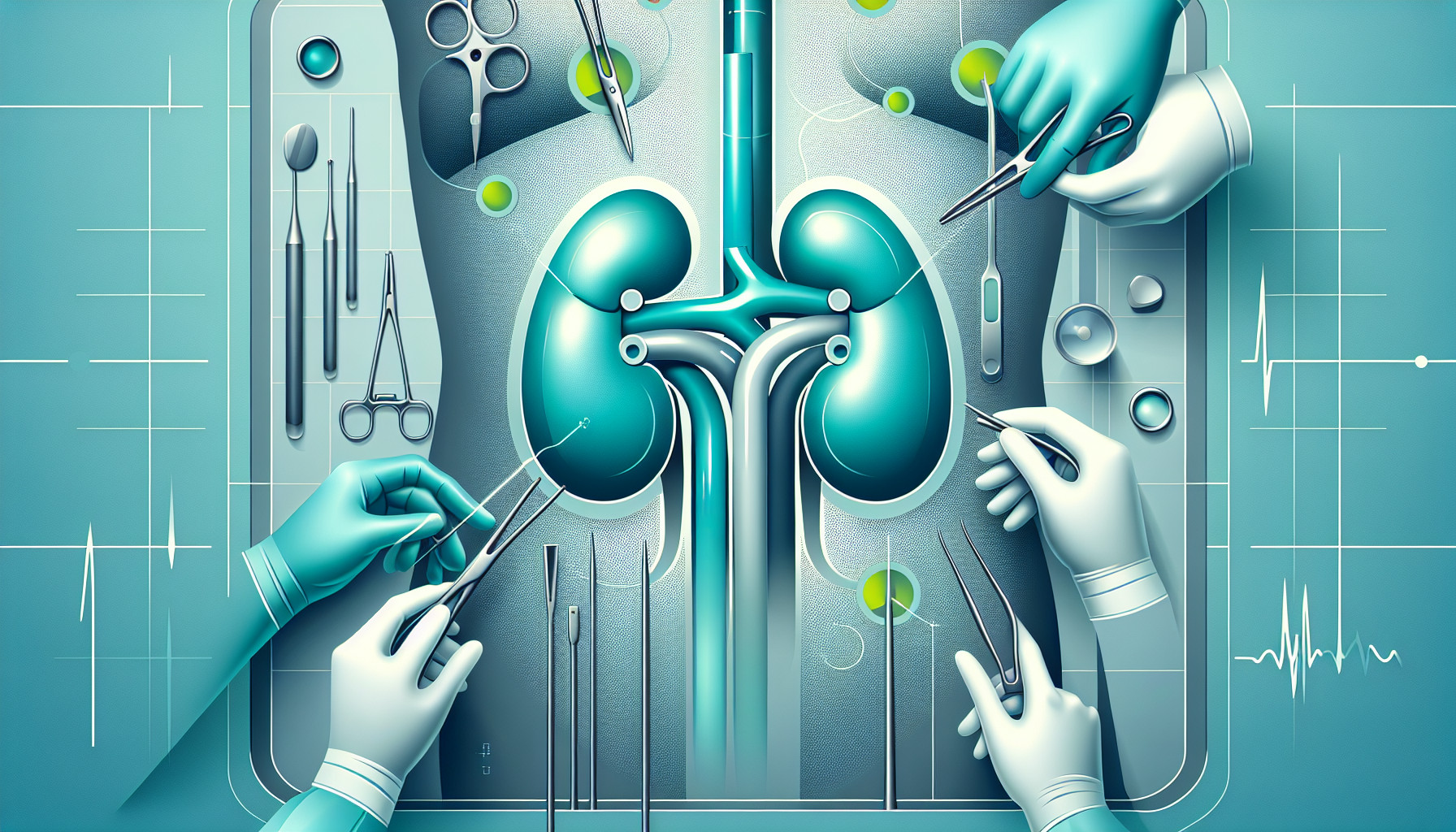Our Summary
The research paper is about advancements in kidney transplants and the challenges that come with them. While survival rates have improved, there are still issues. More people are now eligible for kidney transplants, but there aren’t enough organs available. There are also challenges with managing the waiting list for transplants, properly assessing patients before the transplant, carefully using powerful immune-suppressing drugs, and managing infections that may occur.
FAQs
- What improvements have been made in kidney transplant that have increased survival rates?
- What are some of the challenges faced due to the increase in the pool of eligible patients for kidney transplants?
- What factors must be considered in the process of kidney transplantation, according to the article?
Doctor’s Tip
One helpful tip a doctor might tell a patient about kidney transplant is to make sure to follow all post-transplant medication and lifestyle recommendations closely to ensure the best possible outcome and prevent rejection of the new kidney. Additionally, it is important to attend all follow-up appointments and communicate any concerns or changes in health to the transplant team promptly.
Suitable For
Patients with end-stage renal disease (ESRD) who are on dialysis or approaching the need for dialysis are typically recommended for kidney transplant. Candidates for kidney transplant may have a variety of underlying conditions that have led to kidney failure, such as diabetes, hypertension, autoimmune diseases, genetic disorders, or chronic infections. Patients who are relatively young and otherwise healthy are usually preferred candidates for kidney transplant, as they are more likely to have successful outcomes.
It is important for patients to undergo a thorough pretransplant evaluation to assess their overall health and suitability for transplant surgery. This evaluation may include tests to assess kidney function, heart function, lung function, and overall fitness for surgery. Patients with certain medical conditions, such as severe heart disease, active infections, or certain types of cancer, may not be considered good candidates for kidney transplant.
In addition, patients who are able to comply with the post-transplant medication regimen and follow-up care are more likely to be successful transplant candidates. Patients who have a strong support system, including family members or caregivers who can help them with post-transplant care, are also preferred candidates for kidney transplant.
Overall, the goal of kidney transplant is to improve the quality of life and overall survival for patients with ESRD. By carefully selecting appropriate candidates for transplant and providing comprehensive pre- and post-transplant care, kidney transplant can offer a life-saving treatment option for patients with kidney failure.
Timeline
Before kidney transplant:
- Diagnosis of end-stage renal disease (ESRD) and referral to a transplant center
- Evaluation by a transplant team, including medical, surgical, and psychological assessments
- Placement on the national transplant waiting list
- Waiting for a suitable donor match, either from a living donor or deceased donor
- Pre-transplant medical management to optimize health and reduce complications
- Education on the transplant process, including risks and benefits
After kidney transplant:
- Surgery to remove the diseased kidney and implant the new kidney
- Recovery in the hospital, typically lasting a few days to a week
- Initiation of immunosuppressive medications to prevent rejection of the new kidney
- Close monitoring for signs of rejection, infection, and other complications
- Follow-up appointments with the transplant team for ongoing care and monitoring
- Adjustment to life with a new kidney, including dietary changes and lifestyle modifications
- Regular monitoring of kidney function and overall health to ensure long-term success of the transplant.
What to Ask Your Doctor
- Am I a candidate for a kidney transplant?
- What are the risks and benefits of a kidney transplant for me?
- How long is the waiting list for a kidney transplant?
- What criteria do I need to meet to be placed on the transplant waiting list?
- What is the expected success rate of a kidney transplant for someone in my age and health condition?
- What is the average recovery time after a kidney transplant?
- What medications will I need to take after the transplant, and what are the potential side effects?
- How often will I need to follow up with you after the transplant?
- What lifestyle changes will I need to make after the transplant?
- What can I do to improve my chances of a successful kidney transplant surgery?
Reference
Authors: Augustine J. Journal: Cleve Clin J Med. 2018 Feb;85(2):138-144. doi: 10.3949/ccjm.85gr.18001. PMID: 29425089
